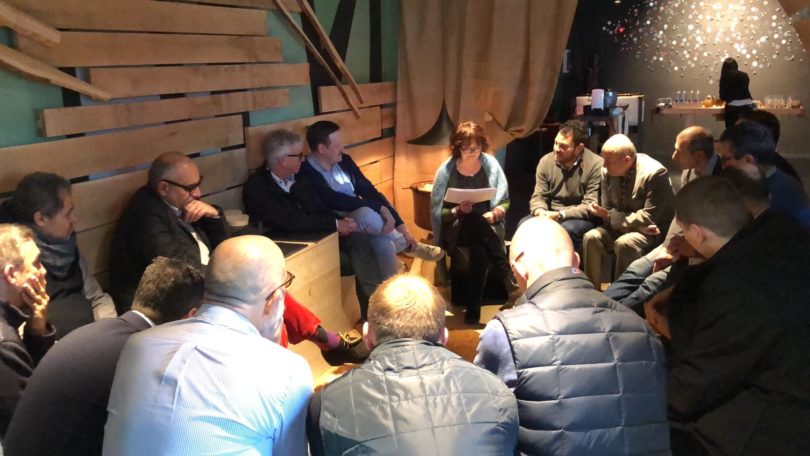We hear a lot of talk at the moment about storytelling, about using stories that we can tell to connect with people, and about adopting approaches that are somehow engaging. At Peoplerise, we also use stories and storytelling, and sometimes, to inspire the people taking part in our projects, we team up with our valued partner Angela Halvorsen Bogo. Angela is a storyteller by profession and it is absolutely fascinating to listen to her vision for storytelling. It is not just a way of communicating with people, but an ancient art form born to establish a connection and inspire ways of learning, alongside more rational aspects.
“When I tell a story – she says – the power of engaging individuals and the wider audience as a whole affects different aspects and levels of our innermost being and more than just our intellect. It is a process linked to emotions, feelings, and imagination, which goes from eye to eye, mind to mind and heart to heart. When telling stories, we don’t pretend that our audience is not there, like with theatre for example. On the contrary, it is a way of being present and connecting with people”.
Listening to a story means having the opportunity to discover something you didn’t know before, and to hear, reflect and understand.
“When I tell a story – Angela states – I am completely open to those present. And the power of connecting with an audience comes with the willingness to be totally present and to welcome the people there. In actual fact, storytelling is the relationship between the storyteller and the listener. It is very different from learning a speech by heart or delivering one that you have prepared yourself for, without reading what you are getting from people in front or around you at that moment in time. The difference lies in the fact that the storyteller connects with the listener in a very deep way, incorporating the response they feel from the audience into their story, adapting the story to the moment, and moving forward based on what is happening around them, identifying the most appropriate means of telling their story for a specific setting. This means that, for example, your tone of voice may change or your movements may slow down. Essentially, every story told is different because everything changes based on who is listening.”

Therefore, the storyteller is not the main focus. Rather it’s the people present and the story being shared. For this reason, listening is fundamental and a storyteller is just a tool used to tell the story. What matters is content and its relationship with the listener. Angela, for example, chooses a story based on a series of intuitions. She has a repertoire to draw from and, based on the situation she must face, she may have certain feelings. But the actual decision on what to tell is made when she comes into contact with the people.
“When you listen to me you may not agree with me, you may not like me. That’s not what interests me. I offer my story and my role is not to force people but to grant them the freedom to listen. Now everyone is using the word storytelling. But storytelling for me doesn’t mean finding a way to manipulate people, make them buy certain things, make them think what we want them to think or turn them against others. You have to be very careful with this aspect, which is very delicate because stories have enormous power. So people should ask questions whenever they hear any given story and ask themselves, for example, what effect has this story had on me? How do I feel now, inspired, confident? More or less of a person? More connected or less so?”.
Discover Angela’s work about storytelling and transformational play
